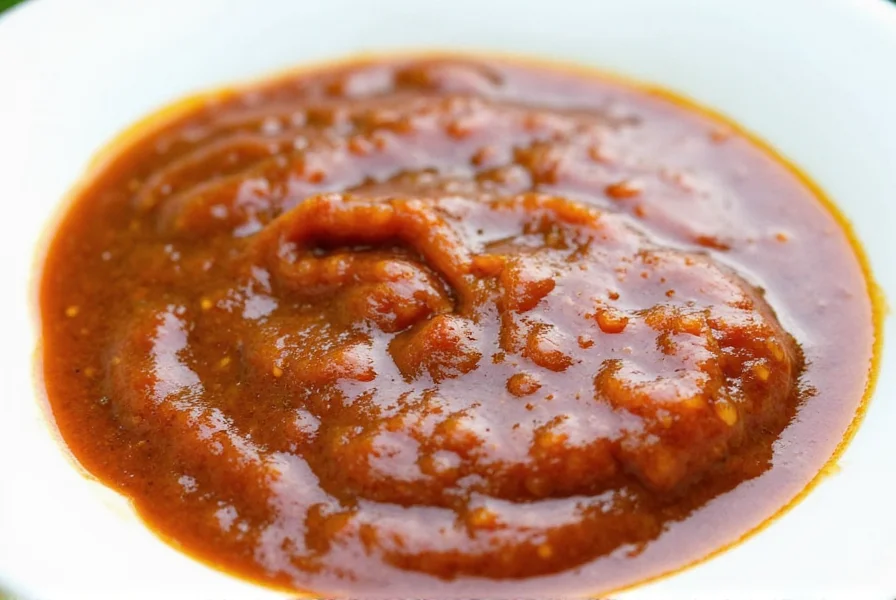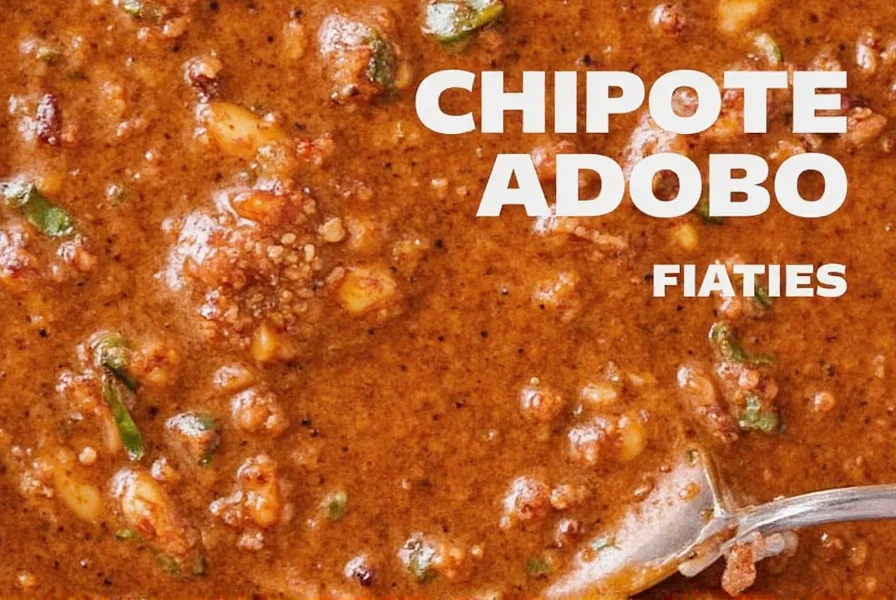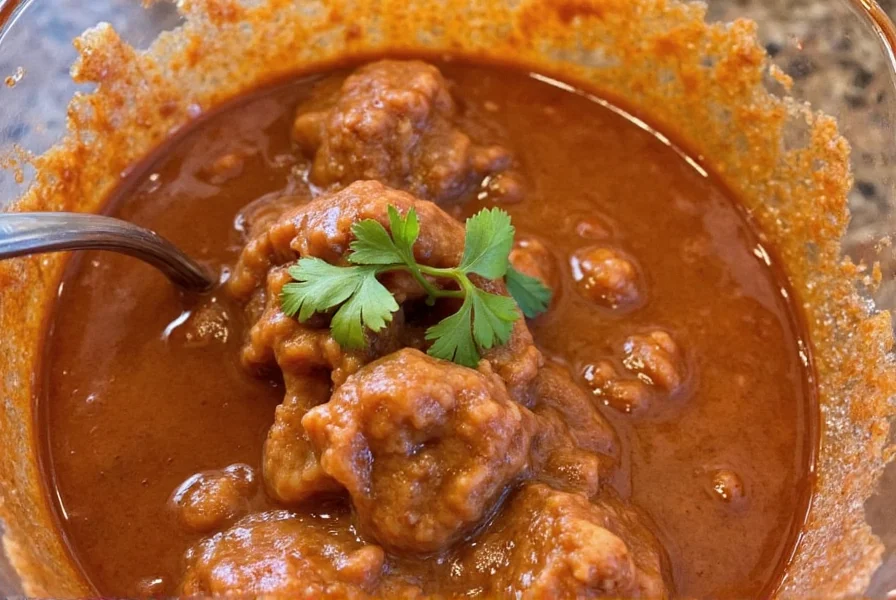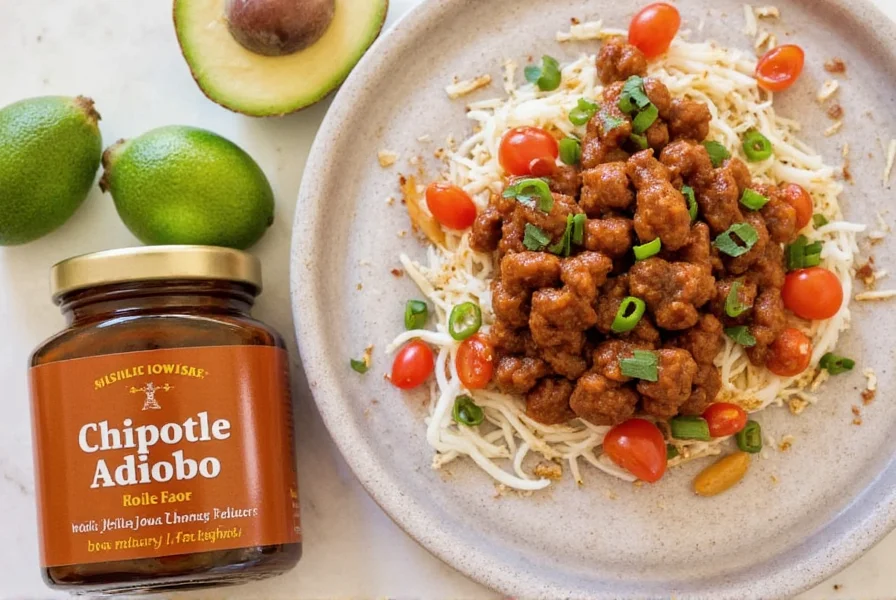Chipotle Adobo Sauce: A Smoky Love Affair with Global Flavors!
If you're a lover of bold, smoky heat with a hint of tangy sweetness, then chipotle adobo sauce might just be your new culinary soulmate. Whether you’re marinating meats, slathering it on tacos, or spicing up a dip, this Mexican-born condiment has traveled far beyond its roots and made a fiery mark on global spice traditions.
Table of Contents
- What Exactly Is Chipotle Adobo Sauce?
- A Fiery Beginning: The Origins of Chipotle Adobo
- How Chipotle Adobo Took Over the World (In a Good Way)
- Top 10 Creative Ways to Use Chipotle Adobo Sauce
- Buying Guide: Choosing the Best Chipotle Adobo Sauce
- DIY Alert: Make Your Own Chipotle Adobo at Home
- Final Thoughts: Spice Up Your Life with Chipotle Adobo
What Exactly Is Chipotle Adobo Sauce?
You’ve probably seen those small cans in your local grocery store labeled "chipotles in adobo." But what exactly are we talking about here? Let’s break it down:
- Chipotle: This is a smoke-dried jalapeño pepper from Mexico. The word itself comes from the Nahuatl word chilpoctli, which means "smoked chili."
- Adobo: Not to be confused with Filipino adobo (which is an entire dish), Mexican adobo refers to a tangy, slightly sweet red sauce usually made from tomatoes, vinegar, garlic, and spices.

When combined, chipotles in adobo sauce offer a deep, rich, and smoky flavor with medium to high heat—perfect for adding complexity to all kinds of dishes.
A Fiery Beginning: The Origins of Chipotle Adobo
The story begins in central and southern Mexico, where indigenous peoples discovered that drying jalapeños over slow-burning wood gave them a uniquely smoky flavor. These dried peppers became known as chipotles.
The adobo sauce itself likely evolved from Spanish influences during colonial times. Originally used as a marinade and preservative, adobo soon became a staple in Mexican kitchens. Today, canned chipotles in adobo sauce are a convenient way to bring that authentic Mexican fire into modern cooking across the globe.

How Chipotle Adobo Took Over the World (In a Good Way)
From street tacos to gourmet burgers, chipotle adobo sauce has become a pantry essential worldwide. Here’s how different cuisines have embraced it:
| Cuisine | Influence of Chipotle Adobo |
|---|---|
| Mexican | Original home base; used in salsas, stews, and sauces |
| American | Found in fast-casual chains like Chipotle Mexican Grill |
| Asian | Used to spice up ramen broths and stir-fries |
| Mediterranean | Mixed into hummus or drizzled over falafel |
| African | Blended into spice rubs for grilled meats |

Top 10 Creative Ways to Use Chipotle Adobo Sauce
You don’t need to stick to tacos and burritos. Here are some out-of-the-box ideas to spice things up:
- Stir a spoonful into mayonnaise for a smoky aioli
- Add a few drops to tomato soup for depth
- Marinate chicken or shrimp before grilling
- Blend into Bloody Mary mix for a spicy kick
- Swirl into mac and cheese for a twist
- Drizzle over roasted vegetables
- Spice up burger or sandwich spreads
- Mix into mashed potatoes
- Boost your chili or Bolognese sauce
- Create a glaze for grilled ribs or pork chops

Buying Guide: Choosing the Best Chipotle Adobo Sauce
Not all chipotle adobo sauces are created equal. Here's a quick guide to help you choose wisely:
| Brand | Heat Level | Flavor Notes | Best For |
|---|---|---|---|
| La Costeña | Mild to Medium | Smoky, slightly sweet, with balanced acidity | Everyday use, tacos, enchiladas |
| Goya | Medium | Bright, zesty, less smoky than others | Soups, dressings, sandwiches |
| El Yucateco | Medium-Hot | Stronger chipotle flavor, thicker texture | Grilling, marinades, homemade sauces |
| Hatch | Hot | Richer, oilier, more concentrated flavor | Exotic dishes, gourmet recipes |

Tips for Buying:
- Check the consistency—if you prefer smoother textures, look for finely blended versions.
- Pick a brand based on usage: everyday cooking vs. special dishes.
- Consider organic or low-sodium options if watching your intake.
DIY Alert: Make Your Own Chipotle Adobo at Home
Feeling adventurous? Whip up your own version of chipotle adobo sauce—it’s easier than you think!
Ingredients:
- 6–8 dried chipotle peppers (or fresh jalapeños smoked)
- 2 cups tomato puree
- 1 clove garlic
- 1 tsp cumin
- 1 tsp oregano
- 1/2 tsp cinnamon
- 1 tbsp white vinegar
- 1 tbsp brown sugar
- Salt to taste
Instructions:
- Toast the dried chipotles lightly in a dry pan until fragrant.
- Soak them in hot water for 20 minutes to soften.
- Combine all ingredients in a blender and purée until smooth.
- Simmer for 15–20 minutes until thickened.
- Cool and store in sterilized jars for up to 2 weeks in the fridge.

Final Thoughts: Spice Up Your Life with Chipotle Adobo
Chipotle adobo sauce isn’t just a condiment—it’s a passport to global flavors packed in a tiny can. Whether you're exploring traditional Mexican dishes or experimenting with fusion cuisine, this smoky, spicy wonder will elevate your meals with minimal effort.
So next time you pass by that little red can in the aisle, don't walk away. Grab it. Open it. Taste the fire. And let chipotle adobo take your kitchen adventures to new heights!












 浙公网安备
33010002000092号
浙公网安备
33010002000092号 浙B2-20120091-4
浙B2-20120091-4